Smart cities like Singapore, New York and Seoul have made huge strides in their smart city initiatives and in adopting innovative smart technologies as a way to make their home cities more energy efficient and minimising carbon emissions. They use ICT technologies to fuel smarter and more sustainable development practices, such as transportation networks, water supply, and heating, as well as promoting safer urban spaces.
The United Nations predicts that 70% of the world’s population will be living in cities and urban areas by 2050, meaning emissions and energy usage will continue to rise with every passing year. The need for smarter urban transport networks, environmentally-friendly water disposal facilities and buildings with high energy efficiency are critical than ever. This is where smart city programmes and initiatives come in. Incorporating smart technology including the Internet of Things (IOT) – objects that are embedded with sensors for data exchange – in urban cities not only improves the quality of life of its citizens but also the overall public safety.
Smart cities can bring a lot of advantages to their citizens. The primary goal is to save resources and make the life of the citizens more comfortable and efficient. But not only humans can profit from the newly implemented technology, but the environment as well. Gathered data can tell us how much energy or water we use and how we can use it in a more sustainable way.
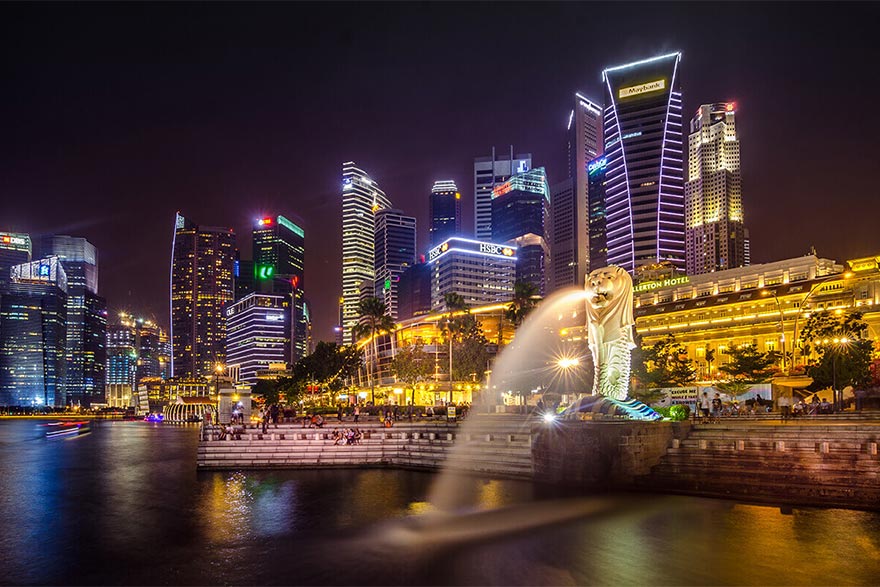
Singapore, Helsinki and Zurich have topped the list as the world’s smartest cities in the 2020 Smart City Index. The annual report, conducted by the Institute for Management Development with Singapore University for Technology and Design (SUTD), ranks cities based on economic and technological data, along with their citizens’ perceptions of how “smart” their cities are. As more international cities join the movement in investing in smart technology, here are seven smart cities that are leading the pack with their smart city projects.
The United Nations predicts that 70% of the world’s population will be living in cities and urban areas by 2050, meaning emissions and energy usage will continue to rise with every passing year
SINGAPORE
Topping most lists when it comes to smart cities is often Singapore. Since launching its Smart Nation initiative in 2014, Singapore has introduced a wide range of smart technologies in both its public and private sectors. Contactless payment technology has been widely adopted to efficiently direct movement and payments for Singapore’s 7.5 million passengers who use public transports.
To help elevate the pressure of an ageing population, a digital health system was introduced – normalising video consultations at the same time – as well as wearable Internet of Things devices to monitor patients. What’s more, Singapore announced in 2021 its plans for a new eco-smart city that is entirely vehicle-free. To be located in Tengah in the western region of Singapore, the planned forest city will be home to five residential districts with 42,000 houses, as well as safe zones for both pedestrians and cyclists.
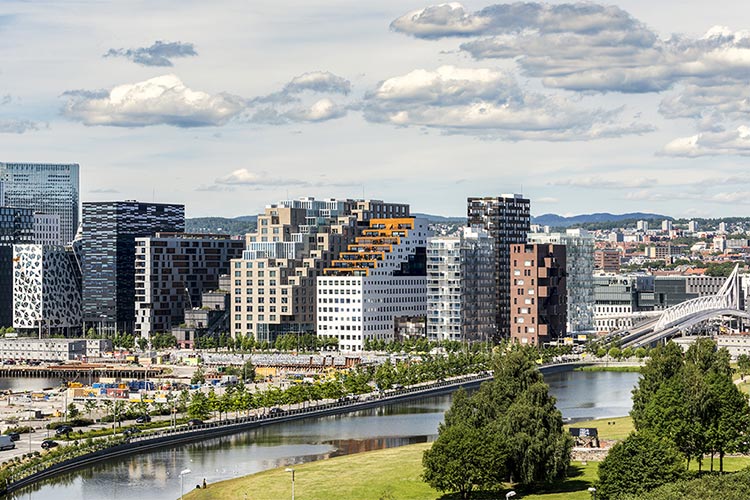
HELSINKI
Helsinki has set themselves an aim of going carbon neutral by 2035 and they’re proved to be on their way in reaching the goal. Even back in 2017, the city managed to lower emissions by 27% than it was in 1990. Another goal Helsinki is working towards is reducing traffic emissions by 69% within three decades by 2035, with measures like transitioning the entire city bus fleet to electric, and expanding its Metro and electric car charging networks. S
ince heating accounts for more than half of Helsinki’s emissions, the city is focused on implementing energy-efficiency measures during renovations, which could reduce emissions from buildings by 80%, as well as incorporating more renewable energy use in the city’s buildings.
ZURICH
For Zurich, it all started with a streetlight project. The city introduced a series of streetlights that adapted to traffic levels using sensors, which increased its brightness or dim accordingly. The project enabled an energy saving of up to 70%. Since then, Zurich has expanded its smart streetlights across the city, and established a greater range of sensory technologies that can Architecture The World’s Smartest Cities collect environmental data, measure the flow of traffic and act as a public WiFi antenna. A smart building management system, which connects the city’s heating, electricity and cooling has been shown to be highly effective as well.
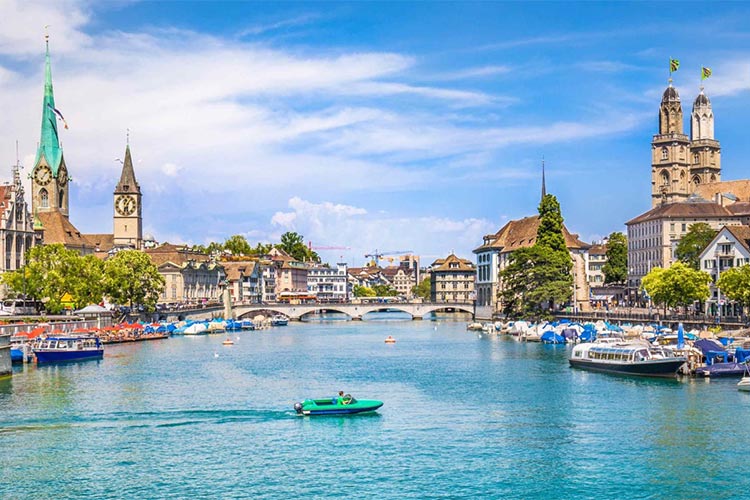
OSLO
The Norwegian capital is going all in with electric cars and plans for all vehicles in the entire city to go electric by 2025, which is impressive considering its population of approximately 670,000 citizens. Incentives for zero-emission cars have already been put in place, including free parking, the use of bus lanes, and lower taxes and prices at tolls.
As part of the city’s target for becoming carbon neutral by 2050, other smart projects are also already well underway in Oslo including zero-emission construction sites and retrofitting existing buildings to develop circular waste management and green energy systems.
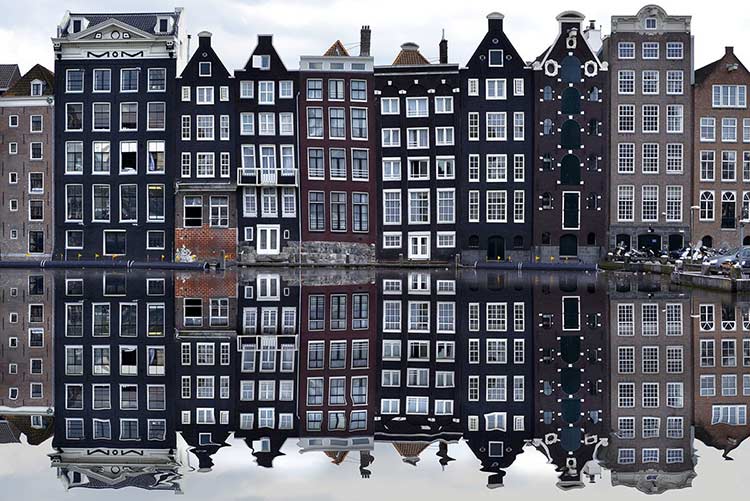
AMSTERDAM
Amsterdam’s smart city project started in 2009 and features more than 170 different operations across the city. What particularly stood out for Amsterdam is its ability to stay innovative, whether it’s the utilisation of renewable energy for electric garbage trucks, installing solar-powered bus stops, billboards and lights, or constructing floating villages to combat overcrowding and provide an alternative to land reclamation.
Throughout the city, thousands of operating businesses and households have already been modified with energy efficient roofing insulation, automatically dimming light switches, smart meters, and ultra-low energy LED lights.
At the moment, thanks to the 5G network, the Korean capital is amongst the first cities to utilise 5G technology in mobility and transportation
NEW YORK
Hundreds of smart sensors and technologies have been tested and placed through the different districts in New York City as part of its smart city pilot programme in 2020. The programme amasses data to help manage services like waste management and collection more efficiently.
New York has also seen the introduction of smart hubs with contactless technology, WiFi capabilities as well as online charging stations in place of phone booths. Car sharing services are also huge in the Big Apple, which helps reduce total emissions and traffic congestions. As an attempt to culminate more local perspectives and creativity, New York City holds an annual contest – with a generous cash prize – for apps that best utilise the city’s open data sets.
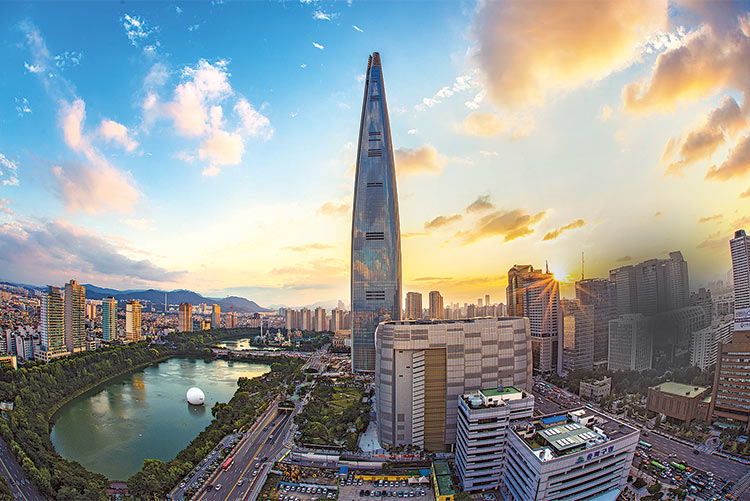
SEOUL
Home to Songdo, also known as the world’s first smart city, Seoul’s smart technology campaigns have only gone from strength to strength since launching its initiatives as early as 2014. Data is at the heart of Seoul’s smart city projects. Through the accumulation and analysis of urban patterns such as traffic flow, speed and air quality measured by sensors and CCTV deployed across the city, form a strong basis for a smart infrastructure and services. Focusing the technology towards the city’s ageing population, a safety initiative was launched in aid of senior citizens who live alone.
When there’s no movement detected over a certain period of time or if abnormal temperature, humidity, or lighting are picked up by environmental sensors, relevant case workers and emergency services would be contacted immediately. Likewise, Seoul is looking into using the data platform creating an AI detective to flag up potential crime patterns. At the moment, thanks to the 5G network, the Korean capital is also amongst the first cities to utilise 5G technology in mobility and transportation.
Featured image by: Pixabay